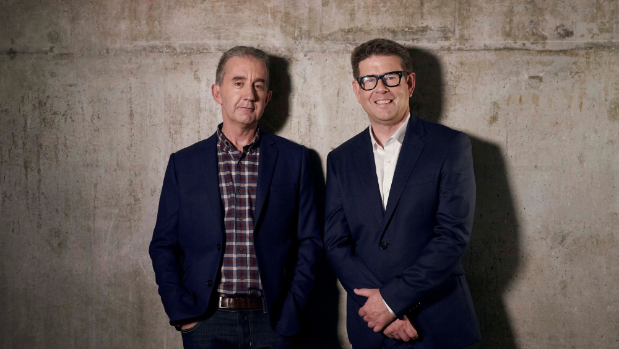 Recently we had a TV programme being hosted by a couple of TV notables which sets out to help develop a view of NZ in the future, based partly on inputs from experts and partly on responses from viewers. If something like 90,000 Facebook viewer responses is any guide it has certainly attracted some interest.
Recently we had a TV programme being hosted by a couple of TV notables which sets out to help develop a view of NZ in the future, based partly on inputs from experts and partly on responses from viewers. If something like 90,000 Facebook viewer responses is any guide it has certainly attracted some interest.
The level of interest was predictable. New Zealander’s, like other humans I suspect, have a fascination with what is going to happen in the future. Predictions have come from all directions over the years and I think that is also a factor in clinging to the notion of “life after death” – just so you can see how it all turned out. And the fact that we get it so wrong so regularly has done nothing to dull the fascination.
We get it so wrong in part because it is inherently difficult. But also because it transpires that our brains are not wired in the right way to be effective in predicting the future, and we almost always end up ignoring the subtle but important signals about the future in favour of our extensive knowledge of the past and the present. Even in the very short term, as Therese May could tell you after contemplating her disastrous election result.
However, we persist because of the hunger to know and the sheer fascination of speculating about what that future might be.
A curious factor in this is that as a species we also seem to have a fascination with predictions of doom and gloom and that further biases attempt at forecasting.
I think the current TV exercise will do no better than any other, however, people will still be fascinated to see what comes out of it.
As indicated above, I think one of the basic problems is that our brains are wired to be backwards looking or looking no further forward than the present. So predictions are inevitably based on what we know rather than what we don’t know. Back in the ‘hunter-gatherer’ days when our brains were developing that was a pretty efficient setup. Current knowledge on tracking the prey was the most valuable information to have, as was historical information on where to most easily find food. There was no point in speculating about an unknown future.
The uncomfortable truth is that we have no real idea what New Zealand will look like in 20 to 30 years time, and with our prediction track record, whatever we guess or analyse it might look like we will probably be horribly wrong.
 Twenty years ago, very few people would have guessed where the digital revolution has taken us and we really have little idea of the problems it will present in the future and how they will be addressed. At one extreme we have solutions proposed like genuine world government, UN style, while at the other extreme there may be complete anarchy as is proves impossible to control the impact and influence of the social media. Or some other solution I have not even thought of might apply. Whatever it looks like, I suspect I will be glad to not be here.
Twenty years ago, very few people would have guessed where the digital revolution has taken us and we really have little idea of the problems it will present in the future and how they will be addressed. At one extreme we have solutions proposed like genuine world government, UN style, while at the other extreme there may be complete anarchy as is proves impossible to control the impact and influence of the social media. Or some other solution I have not even thought of might apply. Whatever it looks like, I suspect I will be glad to not be here.
So how to you react in that sort of situation? As I have said on other occasions it is possible to at least do short term forecasting and planning (up to 5 years) and this is usually plausible even if it turns out to be wrong – but it least it provides a basis for action. But perhaps the best advice is to take a leaf out of the rugby playbook. One of the habits that have been drilled into the All Blacks is to play what you see in front of you, not just stick to some clever plan that has just been outflanked. Doing this does not mean giving up on analysing situations – far from it. Whatever you see in front of you I bet you will find there are several alternatives for dealing with it and choosing the most successful approach or the approach which produces the least regrets, is a real skill.
Attributes which favour this approach include multi-skilling; being able to do almost anything if you must – resilience; being able to survive the situation and still come out fighting, – and a flexible mindset; which acts on what it sees no matter how unexpected it might be.
A criticism of this approach is that it does not cover situations which are of a genuine long-term nature like building infrastructure. This is an incompatibility which I think will grow and I am not sure that multi-billion dollar projects like those being implemented at present are the long term answer. One solution is to keep doing what we do at present and risk ending up with infrastructure which is the wrong type and in the wrong place – you might call this the white elephant strategy. A better approach might be not to have separate infrastructure but rather to make infrastructure a small but inherent part of everything we do, eg don’t build houses which need extensive sewage systems but build houses which take care of their own waste of all sorts – and are sufficiently small and portable so they can be located or clustered to respond to national situations as they develop.
All of this ignores social development and the sort of people we become (which is a whole discussion in itself), and it is this factor which I think will be the ultimate determinant of what our country develops into and looks like.
By Bas Walker
This is another of Bas Walker’s posts on GrownUps. Please look out for his articles, containing his Beachside Ponderings.









Join the Discussion
Type out your comment here:
You must be logged in to post a comment.